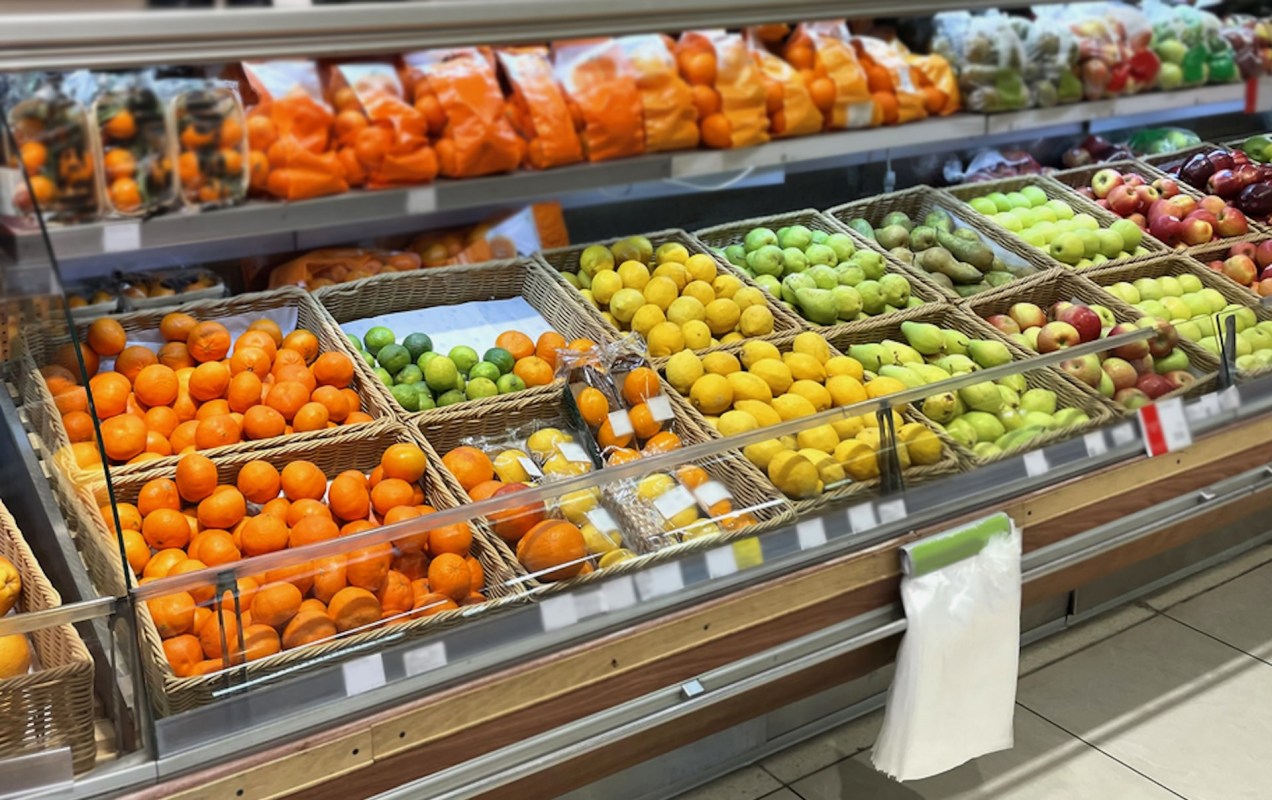Excess plastic packaging is a hot topic as more and more grocery stores have taken to wrapping their produce. While there are some advantages — like fewer blemishes on fruits and veggies — there are also major drawbacks to this wasteful practice.
One frustrating example comes all the way from the Netherlands, where a grocery chain known for sustainability is still embracing plastic wrap.
What happened?
A post about this instance of plastic-wrapped produce appeared on r/Anticonsumption, a subreddit dedicated to reducing waste.

"Each bell pepper is wrapped with plastic in my local supermarket," complained the original poster.
In their photo, there's a display full of red bell peppers, each one individually shrink-wrapped. Other varieties of peppers are visible along the sides of the image, all of them either wrapped the same way or sealed in plastic bags.
Signs on the display and branding on the tubs of cherry tomatoes nearby indicate that the photo was taken in a PLUS, a popular Dutch retail store.
Watch now: Alex Honnold test drives his new Rivian
What's the problem with the plastic?
Wrapping individual produce costs sellers money for labor, equipment, and materials. That raises the cost of each item, a price that consumers are forced to pay at checkout. Buyers then have to deal with the inconvenience of the unnecessary wrappings, which usually can't be recycled because they're too small.
In fact, the vast majority of plastic never gets recycled. Instead, it goes to landfills or ends up in the environment, where it can harm wildlife and generate microscopic plastic pollution.
What is PLUS doing about plastic waste?
Despite appearances, PLUS has actually made a name for itself as an eco-friendly grocery chain in the Netherlands. According to a Produce Business article from 2020, the co-op won the Most Sustainable Retailer award that year for the sixth time in a row.
At that time, Produce Business noted that PLUS sold its fruits and veggies loose and only used compostable bags when needed. When products did come in plastic containers, PLUS used thinner material to reduce the total amount of plastic and chose clear options to make them easier to recycle.
TCD Picks » Upway Spotlight

Things seem to have changed since then, but PLUS isn't unique in that. "I saw foam padding on every individual apple in Korea; I still can't wrap my head around it," said one commenter.
Peppers get plastic wrappers at other stores as well.
What can I do about plastic waste on produce?
Bell peppers are one item that home gardeners can grow for themselves, which is a great way to get them exactly as ripe as you want while ensuring no plastic ever comes near them.
For the rest of the year, you can look for a grocery store or a local provider that uses minimal plastic packaging and support their efforts to stay green.
Join our free newsletter for cool news and actionable info that makes it easy to help yourself while helping the planet.














